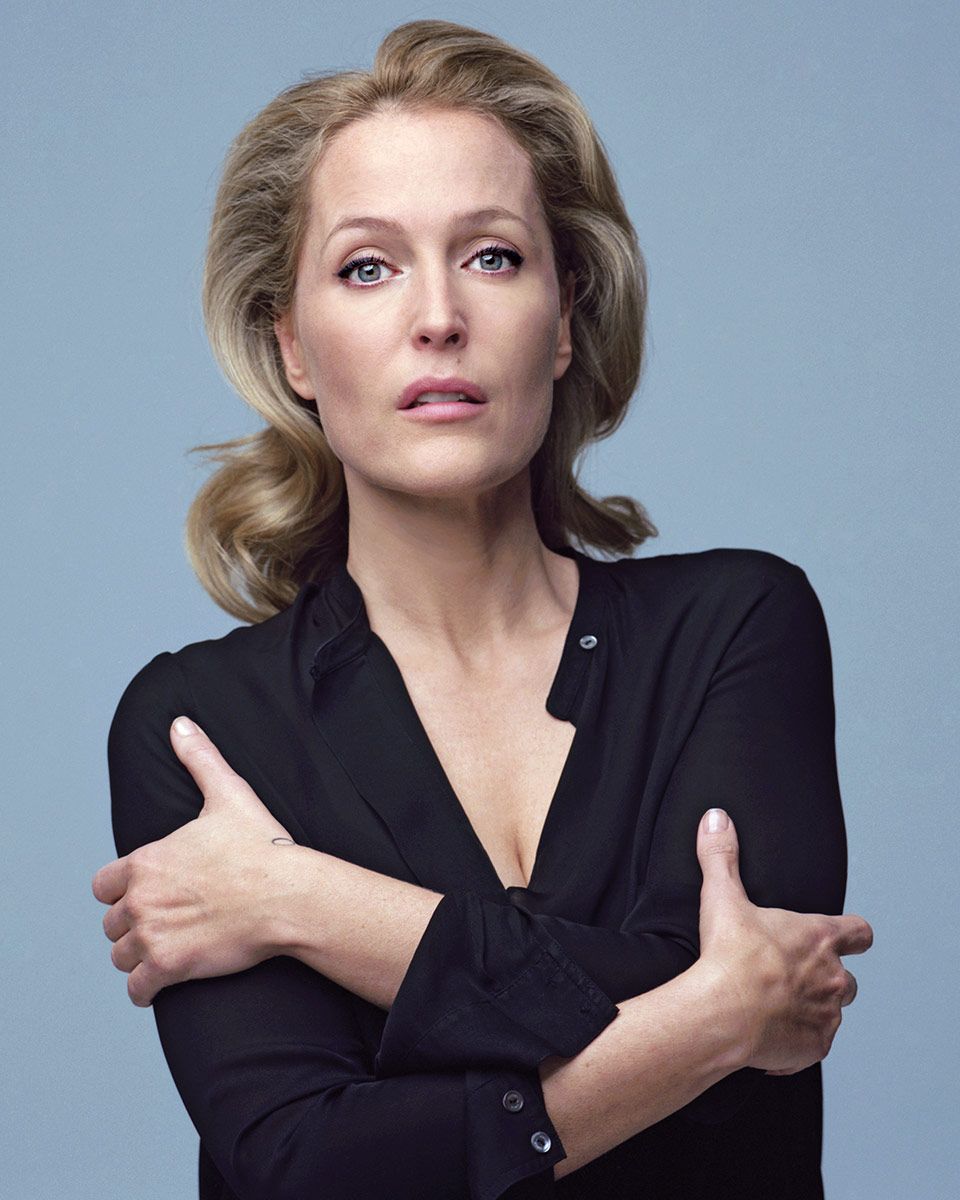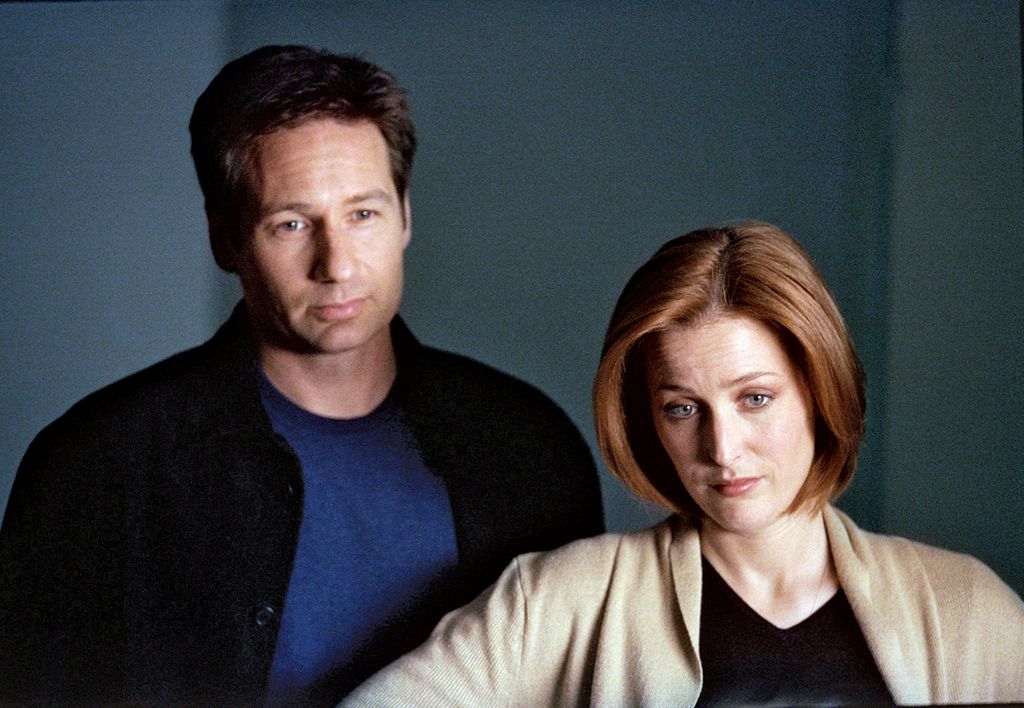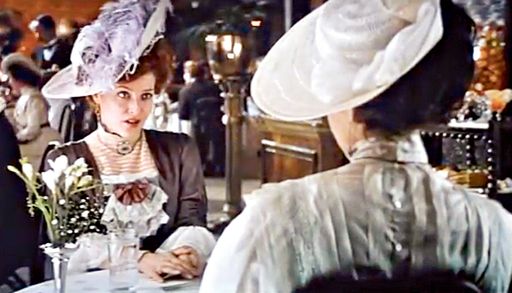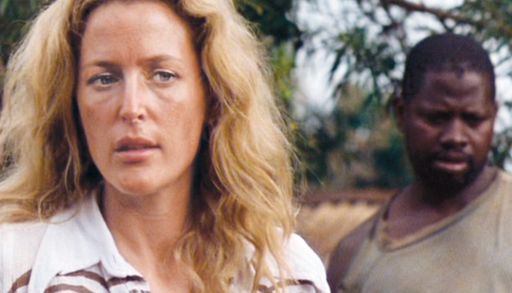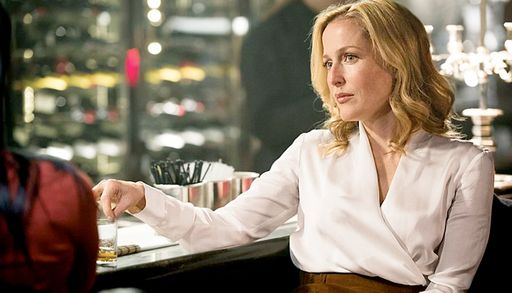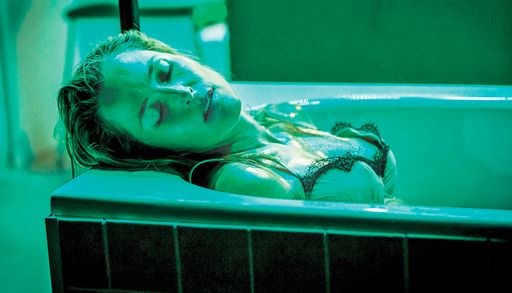Gillian Anderson believes in ghosts. “I haven’t seen ghosts,” she explained in November when we met on a chilly day at a cozy London hotel, “but I’m very hypersensitive, and I generally feel like I can tell if a house is haunted.” She also has “a tendency to believe that people are able to see the future and read minds” and knows “completely sane people who have experienced poltergeists.”
Mulder would approve. Scully? Not so much. That’s FBI Special Agent Dana Scully, of course — the skeptical X-Files character Anderson made famous, and whom she’ll play again when the show returns to Fox as a six-episode mini-series in late January. But Anderson thinks quite differently from the character that boosted her career, and you might say that Scully herself has become a ghost for the actress — a faint, permanent presence, and one that she’s invited back for a full-scale haunting.
Anderson, now 47 years old, last played Scully in The X-Files: I Want to Believe, the second X-Files feature film, in 2008 (the television series ended in 2002), and she has spent the years between then and now moving beyond her. To a large extent, she’s succeeded — TV viewers, especially in the U.K., are likely to recognize Anderson (now definitively blonde rather than a redhead) as the very British detective Stella Gibson from the BBC crime drama The Fall. Theatergoers will have her award-winning performance as Blanche DuBois in London last year fresh in their minds (a role she’s reprising at Brooklyn’s St. Ann’s Warehouse this spring). But with the attendant hubbub surrounding Scully’s long-awaited reappearance, it’s easy to see that Anderson has never really lost her status as a poster girl for the paranormal.
Yet unlike her co-star David Duchovny, who at times during the original X-Files run gave the disgruntled impression of feeling destined for greater things, Anderson was a woman to whom science fiction came easily. She has always loved films like Close Encounters of the Third Kind; she now co-writes sci-fi novels and records the audiobooks herself. She has, as she put it, self-deprecatingly holding her fingers up for air-quotes, “a lot of sci-fi cred.” Which is good, since the world of pop-culture tentpoles has evolved into one ruled by the kinds of genres that used to be looked down on. Sci-fi and fantasy are “all there is to see anymore,” Anderson pointed out matter-of-factly, and the result is that, two decades on, the Zeitgeist has come to her — and Scully — as much as she’s come to it.
Anderson brought a breeze with her as she arrived at our hotel meeting spot, dashing into the lobby wearing a black leather coat. She quickly ordered a coffee and unpeeled some aspirin from a foil packet, hesitating only slightly over a glass of water in front of me. I pushed it toward her, with the warning that I’d drunk from it already. “Oh, I don’t mind that at all,” she said briskly, as if life were too short to worry about germs, or anything else.
She was meeting with me between visits to prospective schools for her 9-year-old son, Oscar (she has a 21-year-old daughter, Piper, from her first marriage, and two young sons, Felix and Oscar, with her ex-partner Mark Griffiths), and had come using a driving app that speaks to her in the voice of C-3PO. “He says to me, ‘In 250 yards, turn left, Master,’ ” she said. “So I like that quite a lot.”
Some men who’ve met Anderson report that she is speech-impedingly beautiful. My own experience is that she’s something more unusual than that. She’s glamorous and charismatic, with the fine features and traffic-stopping hair of a classic Hollywood star, yet she has a curious air of familiarity. This has less to do with her celebrity, I suspect, than a mirroring quality: She can comfortably speak to English people in an English accent and to Americans with an American one. She grew up in both places — moving to London as a 2-year-old, then back to the U.S. at the age of 11 (she spent her adolescence in Michigan) — and she has lived in London for the past 14 years, so both, she says, come naturally.
After the school visit, Anderson was scheduled to go to Belfast to shoot the third season of The Fall, with a stop before that in Toulouse. It wasn’t the most obvious route, but she’d agreed to attend that city’s comic-book convention — a promise made, she admitted in a whisper, when she thought the event was being held in Paris. Those events are part of her world now, and the recent project that’s most mind-boggling to her is an action video game, Squadron 42, due later in 2016, that she filmed with Gary Oldman and Mark Strong.
Anderson got out her phone to show me pictures of herself at work on the game. She was in some sort of hangar, mid–motion capture, wearing what looked to be a rudimentary Halloween costume — Ping-Pong balls stuck to Lycra, a helmet with dangling things that turned out to be tiny cameras. “Here I am, in this ridiculous getup, and the furniture’s made of plywood. There are like 45 cameras in the room,” she said. “To be in this suit, seriously saying ‘Abort mission!’ or whatever it is.” Anderson crumples into incredulous laughter.
So maybe she finds some sci-fi works easier to take than others, but despite her wide range of roles over the past decade — her ghostly, gorgeous Lady Dedlock in the BBC adaptation of Bleak House in 2005, her cotton-candy Miss Havisham in Great Expectations in 2011, The Fall’s clipped and sexy Scotland Yard detective Stella, the wrecked southern belle DuBois — Anderson’s being back on The X-Files seems oddly seamless.
THE ANDERSON FILES
Photographs: Courtesy of Fox (X-Files); Johan Persson (A Streetcar Named Desire)
Indeed, she’s somewhat surprised it’s taken this long to happen. Along with Duchovny and X-Files creator Chris Carter, she always thought there could be a third feature film. “I think we realized that we needed to wrap up the story in some way,” she suggested. But “we got to a point where that was clearly not going to be possible.” Certainly not on TV, since neither actor could imagine going back to 20-plus episodes a year. But once networks began to see that short stacks of series could be a feasible formula, the three of them were ready to try.
“It was on the one hand obviously familiar territory,” Anderson said about the mini-series, “and on the other hand it felt like it was a completely foreign land. Things have changed so much since we did it—politically. I mean, the climate is such that it makes it possible. The show has always had a political element to it — we often speak about the government being dishonest.”
To that end, the new X-Files takes place in an explicitly post-9/11, heavily surveilled America. Dana Scully has retired from the FBI and become a successful surgeon; Mulder, also having departed the agency, appears to be deep into a midlife crisis. She is sleek and competent; he is falling apart. In the first episode, they are reunited, in classically convoluted X-Files fashion, by a powerful right-wing conspiracist who seeks to prove a cover-up of government officials using alien technology to experiment on humans. “You were the X-Files,” the conspiracist tells Mulder. “You practically wrote the book.” “That book is closed,” Mulder replies. “As are the X-Files,” adds Scully.
Anderson suggested that this incarnation of The X-Files could not have been made during the Bush years, when “it was not acceptable to speak up” about security-state overreach. Carter concurs, saying that “the mood in the country is different now. When we went off the air in 2002, no one cared to hear about government conspiracies.” The X-Files has always been, as Carter puts it, “in defense of freedom,” and now it can be political in new ways. “I think it reflects a debate I’m hearing,” he says, “about an accumulation of power by banks, corporations, and the elite.” In 2016, aliens are surprisingly low on the list of Mulder and Scully’s problems.
If you look back at the show’s early episodes, it’s striking to see how Anderson’s presence has now deepened and become even more appealing in the time since. Then, Scully was a dowdy novice, dressed in all those synthetic gray pantsuits and a little soft around the chin, and in retrospect, she and Mulder looked like undergraduates, less likely to be uncovering tangled webs of conspiracy and deceit than asking to share lecture notes with each other.
Anderson laughed when I brought up The X-Files’ formative years. “We were so young! What’s interesting is that I kind of knew that at the time. I was as inexperienced as Scully was. I didn’t feel grown up in my body.” Carter also remembers when the series was just taking its baby steps; Anderson auditioned in borrowed clothes that were too big for her. “I’m happy every day that we cast her, but she wasn’t necessarily the first choice of people with critical sway. She was very green, but we all were.”
Of course, the question we had been unconsciously skirting was the obvious one. To say that Anderson’s relationship with Duchovny had been well documented would imply that everything reported about them was true, and given how contradictory it was, that seems unlikely. They were said to be lovers; they were said to hate each other; there was chemistry or there was pure acid. Suffice it to say that a great deal of attention has been paid, over the years, to their pairing. The onscreen-offscreen slippage was, surely, intentional — their frisson fueled the show, and they knew it. In 1996, Anderson and Duchovny appeared locked in an embrace on the cover of Rolling Stone, lying in bed together naked.
“We’re probably closer today than we’ve ever been,” Anderson told me. Whatever happens with the new series, The X-Files is a fixture in the pop-culture firmament, and she and Duchovny now understand that, in her words, “it’s just the two of us that have had this particular unique experience.” In the past, she reflected, “I don’t think that was necessarily important enough an element to draw us together.” But they both have children, and their friendship has grown. “I think we’re old enough to realize,” she said, maybe a little coyly, “that there’s value in our staying onside and supporting each other.”
Ironically, despite having lived with Scully for the better part of 20 years, on returning to The X-Files — the mini-series started filming in Vancouver in June — Anderson struggled with how to play an older, more experienced version of the character. “I had this locked sense of her that is stuck somewhere in those early episodes,” she said. “So I had to get out of my head the idea that I didn’t seem like her at all, because this was the grown-up version of her.” She noticed that her natural speaking pitch was lower now than it had been during the show’s initial run. As soon as she modulated her voice up in register for Scully, the character became more familiar. In a pleasant reversal, she now wonders if returning to Scully might hinder her upcoming work in The Fall. “I made such a concerted effort after The X-Files was done to push Scully as far away as possible in order to create characters that didn’t resemble her,” Anderson said. “It remains to be seen whether I’ve been able to do that in reverse, and lose Stella for Scully.”
She understands, though, that this goes under the category of good problems to have. “I’m in an extraordinary position to keep getting work,” she said quietly, then paused for emphasis before adding: “At my age. So I’m taking advantage of that while it’s on offer.” Someday, when the specter of Scully has become less present than it currently is, she hopes to try her hand at directing and screenwriting. Neither can happen until, she said, acting “slows down.” She corrected herself. “If it slows down.” But before that day, which given her gifts seems a bit unlikely to come, she has a school, a comics convention, and a murder investigation to get to.
*This article appears in the December 28, 2015 issue of New York Magazine.
